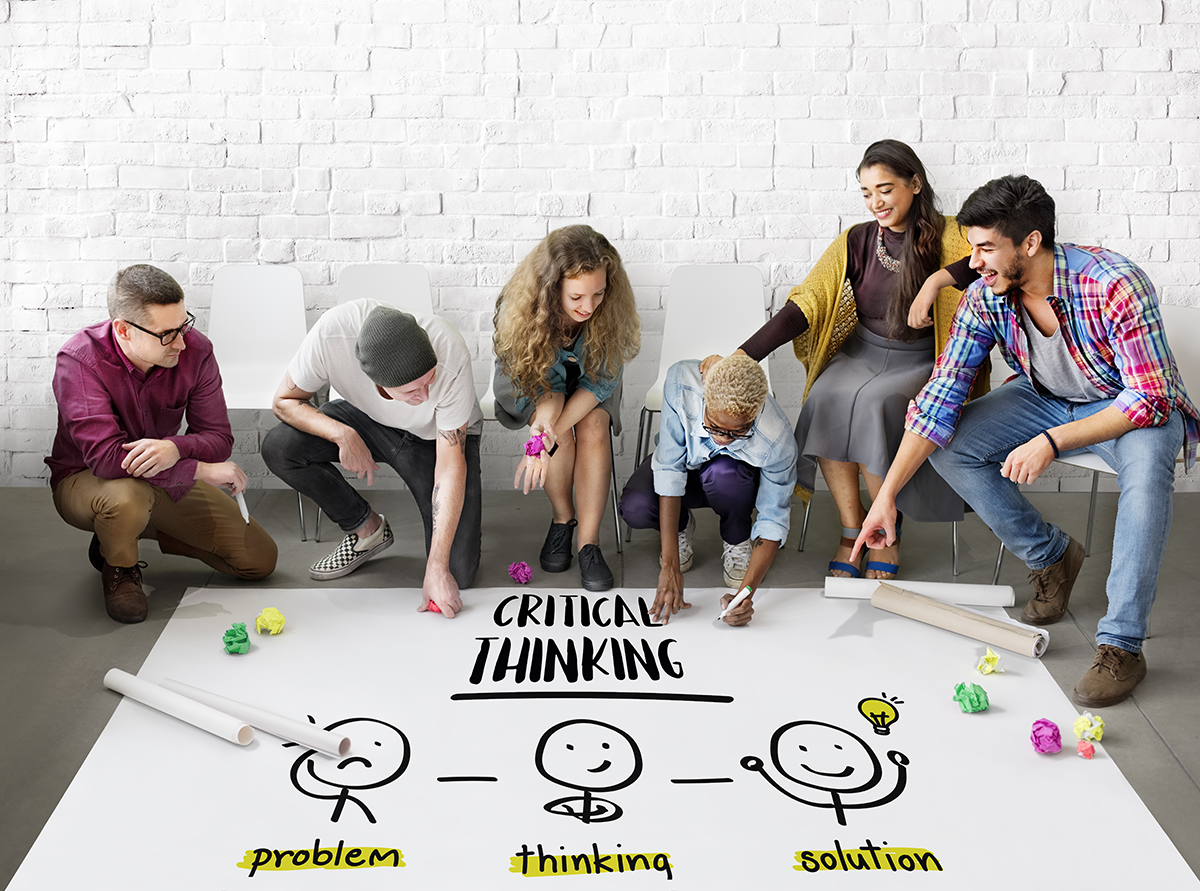Want to know how you and your team can think critically? You’ve come to the right place. By developing your critical thinking skills, you’ll be able to make choices and arguments that are both objective and effective. You’ll also be able to think through and solve difficult problems. Critical thinking skills are important in the workplace, so here we’ll explore seven methods to approach it with your team.
What is critical thinking?
Critical thinking is the process of conceptualising, analysing, synthesising, or evaluating information that you’ve gathered from observation, experience, reflection, reasoning, or communication. It’s about considering the ‘what, where, when, why, who and how’ of something. This’ll help you understand things better and therefore make better decisions, as well as help you recognise and find solutions to complex problems.
If you have critical thinking skills, you’ll be able to:
- Understand the logical connection between ideas.
- Determine whether an argument or idea is important or relevant.
- Recognise, build, and appraise evidence and arguments.
- Find errors or inconsistencies in reasoning.
- Approach problems consistently and systematically.
- Reflect on your own beliefs, values, and assumptions.
Best ways for teams to approach critical thinking
1. Question each other
Questioning what someone says enables you to think critically, so get your team to question each other. For example, if someone makes an assumption or says something you don’t agree with, ask them why they think that way in a non-confrontational manner. If you don’t understand what someone is trying to say or you’re confused, ask them to further elaborate. Asking questions is a great start to thinking critically.
2. Challenge each other’s mental shortcuts
Your brain naturally uses heuristics, or mental shortcuts, to explain what’s happening around you and help you make decisions and solve problems based on limited information. However, this can lead to cognitive biases and personal prejudices. A critical thinker is aware of their biases and prejudices and how they influence seemingly objective decisions and solutions. To make critical thinking possible in your team, you should be aware of and challenge each other’s mental shortcuts.
3. Share and learn critical thinking strategies
There are various critical thinking strategies that you can learn and share with your team. This includes being aware of how you and others think, analysing what someone says or does, using evidence-based reasoning, identifying what isn’t stated, and debating questions and answers. Doing these things can help you and your team think more critically.
4. Use active listening
To become critical thinkers, your team should actively listen to others’ ideas, arguments, and criticisms. This means not thinking of your response or reaction while someone else is speaking. Listening allows you to feel empathy and when you hear someone’s perspective, you can take that information and analyse it. By using active listening skills, you’ll be able to fully understand what someone is trying to tell you because the conversation continues until you can repeat what the other person is trying to say.
5. Look for problems and solve them together
Identifying problems and solving them can also help your team think critically. Once a problem is identified, state it clearly and then figure out what you have to do to solve it. This includes gathering the information you need and analysing it to draw reasonable inferences. Next, consider your options for action and weigh up the advantages and disadvantages of each. Then create a strategy to solve the problem and implement it. Afterwards, review the results and implement change where necessary.
6. Evaluate each other’s strengths and weaknesses
Every member of your team should clearly assess their own and someone else’s strengths and weaknesses, and the impact these may have on any decisions you make. For instance, you could ask questions like: What are you good at? What are you bad at? What do you want to improve on? This can help you assign tasks to the right person and ensure they get done efficiently and effectively.
7. Use foresight
Foresight is the ability to predict the future impact of a decision. Your team should use foresight as far as this is possible so that everyone can make the best decisions and avoid negative outcomes. For example, moving your business to a new location could improve output but you might end up losing skilled workers if the distance is too far. It’s important to consider which of the two is more important and if there’s a way to reduce the conflict.
Develop your critical thinking skills with Deakin’s micro-credentials
Critical thinking can help you evaluate information objectively in order to solve problems and make the right decisions at work. By following these tips, thinking critically will become second nature to you and, in turn, it’ll benefit your team in the workplace.
Critical thinking is an essential skill to have in the workplace and can be gained through learning and practice. Have your existing critical thinking skills recognised, and become an authority in your workplace. Learn more about Deakin’s Critical Thinking Credential today.

